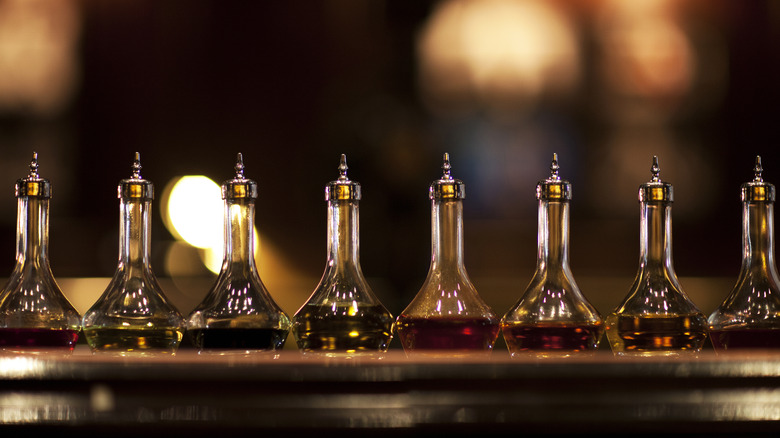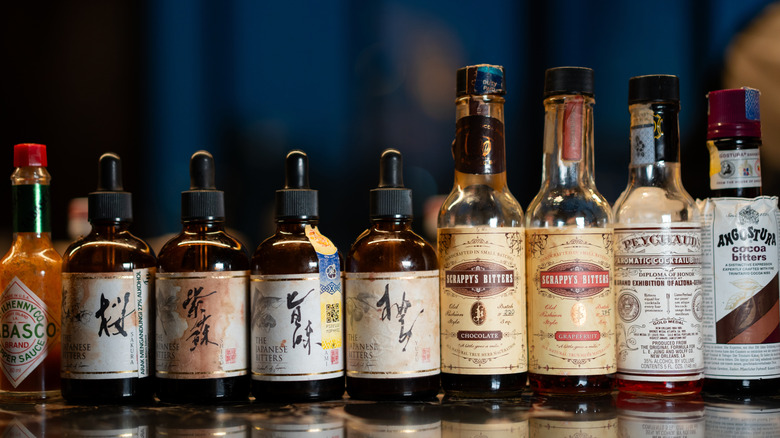What Exactly Are Bitters, And Why Do Some Cocktails Need Them?
Calling the ingredient responsible for altering the flavor profile of a drink "bitters" may be a disservice to it. Steeping herbs, seeds, and bark in alcohol certainly creates a bitter concoction, but it also creates a subtle tapestry of other flavors. To find out exactly what bitters are and why some cocktails need them, we spoke with Andrea Abbondanza, hospitality expert and former chef.
"Bitters are like a spice mix," Abbondanza says. "A dash of garam masala may add some heft to a dish, but dashes of bitters may bring depth, complexity, and scent to a cocktail. They do not simply 'season' the drink — they change the taste of the drink entirely, sometimes in subtle ways you won't notice until you try the cocktail without the bitters." It's that subtlety that can separate a liquor-and-mixer concoction from a true cocktail, bursting with layered flavor.
Alone, bitters are true to their name, much the same way that most spices are fairly unappealing by themselves. However, when mixed into a drink, all those subtle flavors come to life, intertwining with the rest of the cocktail. "All that being said, as with salt, they balance and are used to accentuate other tastes," Abbondanza says. "They're the low-profile MVPs of the bar." From homemade digestive bitters to all the bitters variations that transform whiskey cocktails, you can never have too many MVPs on your team.
How to start using bitters in cocktails
A 200-year history full of appreciation (and booze) is bound to create a cornucopia of bitters varieties. But before you jump headfirst into the deep end, Andrea Abbondanza has some advice to get you started. "Start slowly and be patient," she says. "Invest in one good aromatic bitters (e.g., Angostura) and one citrus-based bitters (e.g., orange or grapefruit bitters). These two will see you through 80% of classic cocktail circumstances and enable you to develop your palate."
Angostura is the granddaddy of bitters, with a history stretching far enough back to be a cornerstone of Mark Twain's favorite whiskey cocktail. The exact recipe is a closely guarded secret but it's remarkable at mellowing harsh or overly sweet alcohols, letting other flavors shine through. Citrus-based bitters add far more new flavors. With so many cocktails calling for citrus zest, juice, or dried fruits, it's a no-brainer addition to any bar looking to expand its flavors.
"Use a dropper and test side-by-side: make two identical drinks and add bitters to only one," Abbondanza says. "You'll start to understand how they influence aroma, mid-palate flavor, and even the finish. From there, explore niche ones like chocolate or cardamom where the base spirit welcomes those warmer notes (think aged rum or bourbon)." Starting slowly helps you understand exactly what sort of flavors you need to enhance your favorite cocktails. While it may be tempting to grab exotic-sounding flavors, take your time and explore your own palate first.


